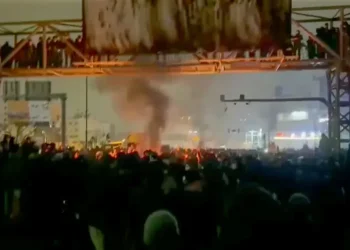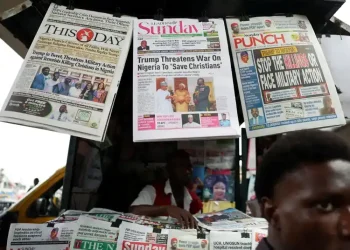Europe’s Wake-Up Call: Can It Finally Stand Up for Its Own Defense?
Europe’s military slumber may finally be over, and the wake-up call came in the form of a televised ambush that many never expected. When former U.S. President Donald Trump publicly reprimanded Ukraine’s President Volodymyr Zelensky during a White House meeting, it wasn’t just a diplomatic faux pas—it was a shockwave through the transatlantic alliance.
For decades, Europe has relied heavily on American support to counter external threats, notably Russia. But Trump’s blunt, no-holds-barred criticism seemed to dispel any lingering illusions that the U.S. would always be there when Europe needed help. This moment may have been the tipping point—Europe, perhaps shaken and fearful, may now be reevaluating its defense strategy like never before.
“It’s as if Roosevelt had welcomed Churchill to the White House and started bullying him,” said European lawmaker Raphaël Glucksmann, reflecting on the awkward, yet pivotal, moment. And he’s not alone in sensing the shift.
In a rare candid moment, U.S. Defense Secretary Pete Hegseth described Europe as “PATHETIC” for “free-loading” on defense. This comment, though unintended for public ears, echoed across the continent. If Europe was ever in denial about its defense needs, it no longer could be. As a result, the continent is breaking decades-old taboos about defense spending and military readiness.
The most significant change came from Germany—Europe’s economic powerhouse. Chancellor-in-waiting Friedrich Merz spearheaded a historic move to abandon Germany’s constitutional “debt brake,” a law that limited government borrowing. This legal shift now allows the government to spend unlimited amounts on defense and security. Experts predict this move could unlock up to €600 billion ($652 billion) in defense spending over the next decade.
“This is a game-changer,” said Piotr Buras, a senior fellow at the European Council on Foreign Relations. “Germany has long been reluctant when it comes to defense, but this decision signals a real turning point for Europe.” Buras points to outgoing Chancellor Olaf Scholz’s “Zeitenwende”—a phrase he coined to describe the monumental shift after Russia’s invasion of Ukraine. The reality is, it wasn’t just Russia’s aggression but Trump’s bombshell that forced Germany to take this step.
Across Europe, taboos that once seemed unbreakable are now crumbling. In France, President Emmanuel Macron, a longtime advocate for European “strategic autonomy,” has hinted at the possibility of extending France’s nuclear protection to its European allies. This is significant because, for decades, Europe has relied on U.S. nuclear deterrence.
Poland and the Baltic States—Estonia, Lithuania, and Latvia—have made bold moves as well. These nations have withdrawn from the 1997 Ottawa treaty on landmines, a historic pact that symbolized the end of mass warfare. Lithuania is even purchasing 85,000 landmines, while Poland is eyeing the production of one million. In a further sign of militarization, Lithuania has also pulled out of an international treaty banning cluster munitions, becoming the first country to ever do so.
The return of military conscription is another sign that Europe is waking up. Denmark, for instance, has made women eligible for mandatory conscription from 2026 and has loosened health requirements to expand its military manpower. Poland, too, is gearing up to ensure every adult male receives military training.
Even traditionally neutral countries like Ireland are reconsidering their stance. The Irish government has put forward legislation that would allow troops to be deployed without United Nations approval, bypassing any potential Russian or American vetoes.
Despite these developments, Europe’s path to unity remains complicated. Not all countries are on the same page. When European Commission President Ursula von der Leyen introduced the “ReArm Europe” defense plan, aimed at ramping up defense spending, some countries balked. Spain and Italy expressed concerns, and the plan has since been renamed “Readiness 2030.”
Italy’s Prime Minister Giorgia Meloni has even ruled out sending Italian troops to a European peacekeeping mission in Ukraine, should a negotiated settlement be reached. This stance highlights a growing divide within Europe: the further west a country is from Russia, the less urgency it feels about prioritizing military defense.
Spanish Prime Minister Pedro Sanchez has echoed this sentiment, emphasizing that Spain’s primary security concerns are not rooted in Russia’s territorial ambitions but rather in challenges from the southern Mediterranean. This geographic split could deepen tensions within Europe, but as Buras of the European Council on Foreign Relations notes, unity on defense has always been elusive. “What really matters is what the key countries do—Germany, France, the UK, and Poland,” he said. “I’m cautiously optimistic that we’re on the right track.”
As March draws to a close, it’s clear that Europe has been jolted awake from its defense slumber. But the question remains: is it too little, too late? While many see this as the moment Europe finally “woke up,” the real challenge lies in what happens next.
“Now we need to get dressed,” Buras quipped, highlighting the urgent need for concrete action to back up Europe’s newfound resolve.
Europe’s defense strategy is changing, but whether these shifts lead to lasting unity and a more self-sufficient defense posture will depend on how quickly—and how thoroughly—these nations act. Only time will tell if Europe can stand on its own in the face of new and evolving threats.
Source; CNN – ‘PATHETIC’ Europe may finally be waking up from its military slumber
This article was rewritten by JournosNews.com based on verified reporting from trusted sources. The content has been independently reviewed, fact-checked, and edited for accuracy, neutrality, tone, and global readability in accordance with Google News and AdSense standards.
All opinions, quotes, or statements from contributors, experts, or sourced organizations do not necessarily reflect the views of JournosNews.com. JournosNews.com maintains full editorial independence from any external funders, sponsors, or organizations.
Stay informed with JournosNews.com — your trusted source for verified global reporting and in-depth analysis. Follow us on Google News, BlueSky, and X for real-time updates.














